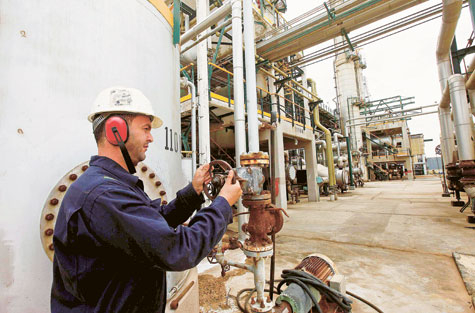
Over the past few days, there has been worrying news about a rapid loss of global oil reserve margins.
Jim Krane, an energy and electrical power researcher at Cambridge University, has pointed out that Saudi Arabia could face a dangerous loss of its oil reserve margins.
Another researcher, from the Japanese Energy Institute in Tokyo, has warned that oil reserves could last for far less than expected. He predicts that international oil reserves will run out in 2030. Earlier estimates, by major companies, said that oil reserves could last until 2040.
These two sources are highly credible as they are international scientific bodies that specialise in oil and energy. Also, Time magazine has published a report on the dangers and threats to oil production across the globe. It also cast doubt on publicized data and numbers related to oil.
Oil producing developing countries do not have specialised oil and energy research centres and institutes. This increases doubts about their production capacity and the future of world energy supplies. There are a number of possible reasons for the unexpectedly rapid depletion of oil resources:
Previous estimates
Firstly, previous oil reserve estimates may have been incorrect or exaggerated. This might be because foreign oil companies incorrectly estimated the size of reserves or because Organisation of Petroleum Exporting Countries (Opec) members exaggerated their national reserves to increase their share of the organisation's production quota. This may have happened when oil prices dropped to less than $10 per barrel in 1986 and 1998.
The second possibility could be related to the huge increase in exports from some oil producing countries over the past five years. Production was raised to meet increasing international demand for oil, which led to the price hitting $47 per barrel two years ago.
This increase in production reduced the volume of oil reserves.
The third possibility is related to the re-drawing of the international oil reserve map. Venezuela, Brazil and Russia have announced huge oil discoveries. Venezuelan reserves alone are said to be more than those of Saudi Arabia's 260 billion barrels. If the estimates are correct, then Venezuela now has the world's largest oil reserves.
But an unexpected reduction in oil margins cannot merely result in the rotation of the title of owner of the largest reserves. Oil exporting countries have to study their current and future options carefully if the expectations of these highly credible and reputable institutions are true.
Short time
And, although these options seem limited because of the short time available according to these studies — around 17 years — there must be ways to ease the transition to the post-oil era.
This is an important, sensitive time for oil producing countries — including those in the Gulf Cooperation Council (GCC) — that have depended on exports for their development for the past six decades.
Dr Mohammad Al Asoomi is a UAE economic expert and specialist in economic and social development in the UAE and the GCC countries.












